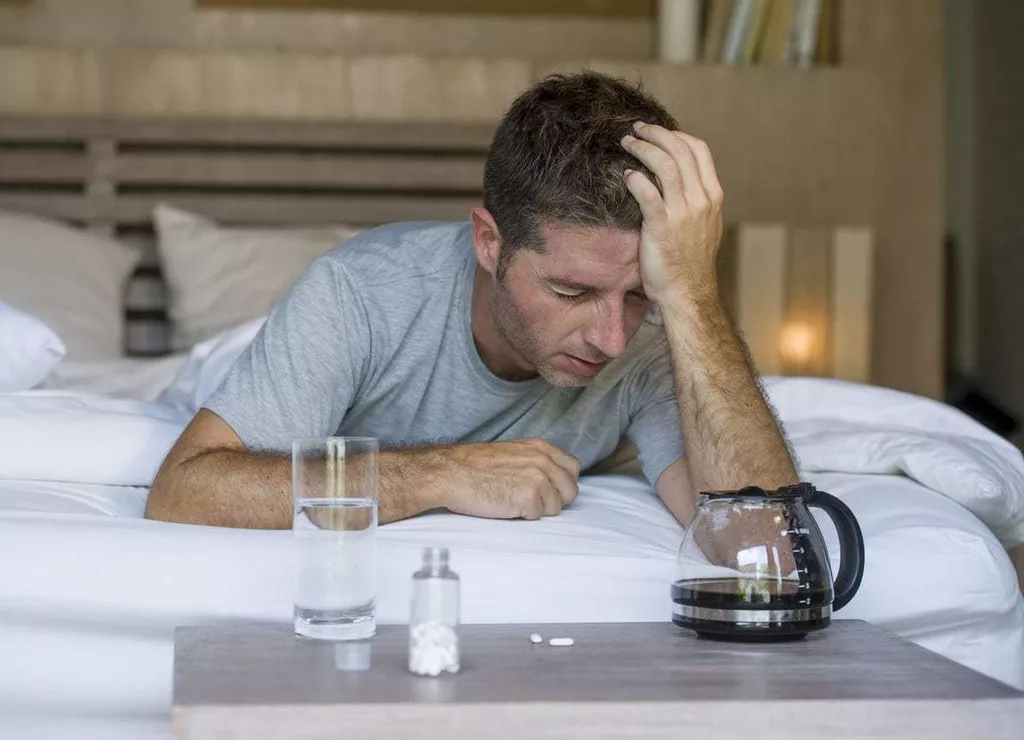Alcohol Related Psychosis StatPearls NCBI Bookshelf
Contents
Alcohol.org needs to review the security of your connection before proceeding. | Privacy Policy | Sitemap | BrightView will serve patients equally, without regard to race, ethnicity, gender, sexual orientation, religion, or national origin. Depending on the cause, alcohol-induced psychosis may be temporary or permanent.
Although substance use can’t be directly linked to schizophrenia, it is indirectly related to the condition. Although more studies have been geared toward nicotine and marijuana, scientists have found that substances altering your nervous system can trigger first-time psychosis. Each type of alcohol-induced psychosis has different risks, but overall, the best way to avoid developing any of these conditions is to quit drinking. This means entering an evidence-based detox program, completing a rehabilitation program that specializes in AUD, and creating an aftercare plan. The disorder often combines regular periods of compulsive, uncontrolled binge drinking alongside heavy drinking.
While it’s rare for psychosis to be triggered after one instance of heavy drinking, it is possible. Once your body fully processes the alcohol, the psychosis symptoms usually stop. Treatment interventions that help a person maintain sobriety can help improve outcomes for those who have experienced alcohol-induced psychosis. The Recovery Village Palm Beach at Baptist Health is an alcohol treatment center in South Florida that can provide treatment for alcohol addiction and co-occurring disorders. 12 to 24 hours after heavy alcohol consumption abruptly stops, and it can last for several days.
Thus, public health interventions implemented from a food addiction conceptual framework can have large-scale implications in addressing the obesity epidemic. If white blood cell count falls below 3 x 109/liter and/or neutrophil count below 1.5 x 109/liter withdraw immediately. Following withdrawal, the patient should be referred to a specialized hematological unit if the wbc count falls further to below 1 x 109/liter and/or neutrophil count below 0.5 x 109/liter. Treatment may include thiamine, 100 mg parenterally, followed by supplemental thiamine, 100 mg three times a day, folic acid, 1 mg daily, and a daily multivitamin. Antipsychotics may lower the seizure threshold and should not be used to treat withdrawal symptoms unless absolutely necessary and used in combination with a benzodiazepine. The Association for Addiction Professionals represents the professional interests of more than 100,000 addiction-focused health care professionals in the United States, Canada and abroad.
Located in Orlando, Florida, our state-of-the-art rehab treatment center specializes in dual diagnosis treatment for addiction and co-occurring mental health conditions like psychosis. Psychosis from delirium tremens is a more severe diagnosis than alcoholic hallucinosis. Delirium tremens is a severe complication of alcohol withdrawal and is classified as a medical am i an alcoholic 10 warning signs of alcoholism emergency, as symptoms can be life-threatening. Delirium tremens usually develops two to three days after excessive alcohol consumption concludes. These symptoms may appear for a few hours, or they could last for up to a few weeks. For example, the first time you experience alcohol-induced psychosis during a binge-drinking episode, it may be short-lived.
Can alcohol cause schizophrenia?
For example, studies of the perpetrators of homicide in Britain found that 39% of killers suffered from a mental disorder. In Sweden, 53% of killers were found to be mentally ill, as were 35% of Canadian killers. Britain, Sweden, and Canada have some of the lowest homicide rates in the world. In contrast, only 19% of killers in New York City, 4.4% of killers in Detroit, and 4.4% of homicidal offenders in Australia were found to suffer from mental illness. After prohibition ended, most states established 21 years as the age of majority.
It is during this stage of Wernicke-Korsakoff syndrome that psychosis can occur. Wernicke-Korsakoff syndrome can cause hallucinations and memory gaps that a person will fill with made-up memories called confabulations. Is a serious complication of heavy alcohol use and is caused by low levels of thiamine . Alcohol is the main cause of Wernicke-Korsakoff syndrome in developed areas of the world, as the substance affects how thiamine is absorbed. Low thiamine levels can cause brain inflammation that creates dangerous neurological symptoms. Psychosis from alcoholic hallucinosis is primarily characterized by auditory hallucinations, such as accusing and threatening voices, along with visual hallucinations.
Unlike alcoholism, alcohol-related psychosis lacks the in-depth research needed to understand its pathophysiology, demographics, characteristics, and treatment. This article attempts to provide as much possible information for adequate knowledge of alcohol-related psychosis and the most up-to-date treatment. Taking a careful and detailed clinical history is of paramount importance during the preoperative evaluation.
History and Physical
The one consistent feature of any kind of psychosis involves an experience or belief that is not based in reality. Instruct the patient to abstain from the use of alcohol and illicit drugs. Symptoms of any accompanying Korsakoff syndrome are highly resistant to treatment because of the irreversible neurological damage. Psychiatric complications of alcohol-related psychosis include higher rates of depression, anxiety, and suicide. Seizuring theories of crime are based on research into the causes of epilepsy. If subconvulsive seizures are located in the limbic system, they may have significant effects on emotions, sometimes resulting in criminal behavior.
There must be evidence that the hallucinations or delusions started during or soon after substance intoxication or withdrawal or the substance used is known to cause the disturbance. The symptoms are not better explained by a psychotic disorder unrelated to substance use. The symptoms cause clinically significant distress or difficulty with normal activity such as work or social interactions. Delirium tremensis a life-threatening condition that occurs with alcohol withdrawal. Delirium tremens causes a complete disconnect with reality that includes hallucinations and an inability to recognize others. It can also cause someone to believe they are in a completely different environment, typically a negative one.
Can an MRI show psychosis?
If imaging of the brain is needed in a patient with first-episode psychosis, an MRI should be preferred over a CT scan. This is because an MRI has much greater sensitivity for picking up brain pathology and because an MRI avoids exposure to ionizing radiation (Forbes and Stuckey, 2020).
It’s vital to recognize the symptoms of alcohol-induced psychosis so that you can stop the condition from developing into delirium tremens. Nearly 25 percent of those with a prolonged history of alcohol abuse will experience hallucinations, which typically occur 24 hours after their last drink and persist for another 24 hours. The symptoms consist of auditory, persecutory, or visual, and tactile hallucinations. In the earliest stages, the individual will recognize these hallucinations.
This type of alcohol-induced psychosis may occur sporadically for hours or days. Over time, alcoholic hallucinosis can begin mimicking the signs and symptoms of alcohol abuse symptoms of schizophrenia and last indefinitely. This may include Wernicke-Korsakoff syndrome and long-term psychotic disorders.
It is generally accepted that alcohol-related psychosis remits with abstinence, unlike schizophrenia. Comorbid psychotic disorders and severe mood disorder with psychosis may exist, resulting in the psychosis being attributed to the wrong etiology. The clinical examination begins with a comprehensive visual assessment consisting of visual acuity measurement and refraction for both distance and near. However, in the presence of opaque media, some of these tests may not be performed reliably.
Policy and Public Health
Call us today for a free, confidential consultation and to learn about our treatment programs. Alcohol paranoia, alcohol-induced psychosis, or alcohol and psychosis disorders, it’s time to get help. Typically, this condition gets worse over time if it is left untreated or if the underlying alcohol addiction is not overcome. In general, this condition has a prevalence among people who chronically abuse alcohol of 0.6 percent to 0.7 percent, and it tends to resemble schizophrenia. Otherwise, there is little consensus on what the condition is, other than noting that it is distinct from DTs.
The information we provide is not intended to be a substitute for professional medical advice, diagnosis or treatment. It should not be used in place of the advice of your physician or other qualified healthcare provider. Someone who has episodes of alcoholic psychosis may start to isolate themselves to hide their symptoms. They may stop paying attention to their obligations or personal hygiene. The delusions of someone with alcohol-induced psychosis could be mistaken for inebriation. But if the break with reality is extreme, the symptoms can mimic those of schizophrenia.

How do you prepare for life after treatment, and what kind of help do you need? Ever wonder what a chronic relapser is and how they can affect your family? Another pathology theory is rooted in the observation that one male out of every 700–1000 is born with an extra Y-chromosome, and one male out of every 500 is born with an extra X-chromosome. Both genetic abnormalities result in males who score lower on standard intelligence tests and show an increased likelihood of criminal behavior, including lethal aggression. However, these genetic abnormalities are likely to explain only a tiny fraction of the homicides committed, since males with an extra chromosome only constitute 1–2% of the total prison population. This dysfunction is sometimes discrete and temporary, and it rarely recurs.
Can alcohol cause psychosis?
Other alcohol-related psychosis symptoms can include inappropriate behavior and emotions, lethargy, loss of interest in regular activities, inaccurate beliefs and irritability without cause. In as much as 50% of Japanese, Chinese, and Korean populations, the likelihood of alcohol-related disorders occurring is less because of the absence of aldehyde dehydrogenase. This causes an Antabuse-like reaction involving facial flushing and palpitations. Those with first-episode psychosis are twice more likely than the general population to present with comorbid substance abuse and are more commonly males than females. The most commonly reported substance is cannabis (51%) followed by alcohol (43%). To some degree, they all involve the neurotoxicity of alcohol and its damage at the genetic, biochemical, and cellular levels leading to physiological and neurological pathology.

The prevalence of alcohol-psychosis seems to be highest among working-age men, people who became addicted to alcohol at a young age, those of low socioeconomic status, and individuals who live alone. To qualify as alcohol-induced psychosis, symptoms must persist for a minimum of 48 hours. Concerning signs to look for in yourself or in others include mood changes, delusions, hallucinations (seeing or hearing things that aren’t really there), anxiety, and talking to oneself.
Psychiatric Diseases
If a person cannot abstain from alcohol, they may experience recurrent psychosis episodes, which can be very dangerous, as patients are at increased risk of self harm or harm to others. Acute alcohol intoxication, https://en.forexbrokerslist.site/ alcohol withdrawal, and long-standing alcohol misuse all have the potential to lead to alcohol-induced psychosis. Schizophrenia is a psychotic disorder, which means that it involves hallucinations or delusions.
- For patients with alcohol use disorder, previously known as alcohol abuse and alcohol dependence, psychosis can occur during phases of acute intoxication or withdrawal, with or without delirium tremens.
- Alcohol psychosis symptoms usually subside once the body clears itself of alcohol.
- Located in Orlando, Florida, our state-of-the-art rehab treatment center specializes in dual diagnosis treatment for addiction and co-occurring mental health conditions like psychosis.
- Wernicke-Korsakoff syndrome can cause hallucinations and memory gaps that a person will fill with made-up memories called confabulations.
While drinking alcohol does cause symptoms like decreased inhibition or impaired coordination, it rarely causes symptoms of psychosis. Alcohol-induced psychosis typically occurs due to secondary effects of alcohol use — not from alcohol use itself. These effects can include alcohol hallucinosis, delirium tremens and Wernicke-Korsakoff syndrome.
While the exact cause is still debated, experts agree that long-term alcohol abuse can cause psychosis. In this post, we’re going to shine some light on alcohol induced psychosis. That way, you’ll get a better understanding of this condition and know the signs and symptoms to look out for. There are many symptoms that could possibly occur before the hallucinations begin.
What are the two primary signs of psychosis?
- Hallucinations: Auditory hallucinations: Hearing voices when no one is around.
- Delusions: Beliefs that aren't in line with your culture and that don't make sense to others, like: Outside forces are in control of your feelings and actions.
No family history of psychotic disorder in a patient who has a clear history of alcohol use supports the diagnosis of alcohol-related psychosis. Alcohol-related psychosis must be differentiated from other causes of psychosis and specifically from schizophrenia. Patients with alcohol-related psychosis also usually have better insight and judgment. Due to the strong mental health component, it’s recommended to attend addiction treatment that specializes in dual diagnosis disorders. Alcohol induced psychosis can be treated, and the first step is breaking free from alcohol addiction. And with the right detox program, you’ll be able to minimize the symptoms of psychosis during withdrawal.
